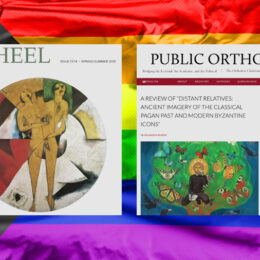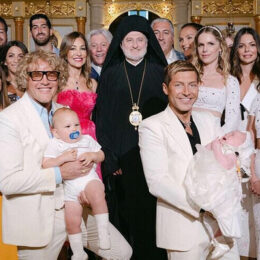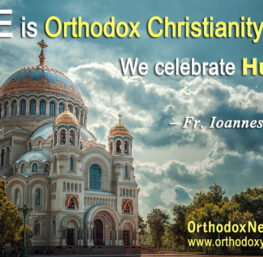Wednesday, Nov. 9, 2005 Posted: 5:20:31PM EST
Delegates to the 55th National Council of Churches (NCC) General Assembly nominated an Orthodox bishop as president-elect and reconfirmed the need to strengthen ties with Orthodox churches within the Council.
Bishop Vicken Aykazian, a Turkish-born priest who represents the Diocese of the Armenian Church of America in Washington, was nominated on Tuesday – the first day of the Nov. 8-10 General Assembly in Hunt Valley, Md. If confirmed, he will serve for two years as president-elect and be automatically confirmed as president for the next term.
Also on Tuesday, former NCC president Rev. Leonid Kishkovsky of the Orthodox Church in America encouraged members to become “better acquainted with one another to avoid misrepresentation and miscommunication.
Both actions came only months after a longtime NCC member – the Antiochian Orthodox Church – withdrew its membership from the Council. The Antiochian Church representatives said they were dismayed by the left-leaning political stances of some NCC member communions as well as the Council’s leadership itself. They described a letter sent by NCC General Secretary Dr. Bob Edgar – in which he criticized right-winged Christian groups – as being too liberal and political.
Following the withdrawal, NCC’s top members requested a visit with the Antiochian leadership, but the Orthodox church refused.
According to Kishkovsky, the Antiochian withdrawal was “particularly alarming to Orthodox” members of the Council because of fears their move “could have been dramatic in the lives of other Orthodox communions.”
There was “profound anxiety” about the future of their own ecumenical involvements, Kishkovsky said.
However, Edgar visited leaders of the other Orthodox churches and had largely relieved such anxieties. Through the meetings, the NCC found that it must “become better acquainted and more deeply informed about the lives and processes” of sister communions.
“We realized that we had not been very alert to developments in the archdiocese,” Kishkovsky said.
The highlight of the General Assembly is the Thursday Night installation service for the new president and the president elect.
Pauline Chang
pauline@christianpost.com
Copyright © 2004 The Christian Post.




I had heard that there were those in the OCA who are passionately committed to staying in the NCC. It looks as if they have carried the day. It would also seem that the movement for OCA/Antiochian unity has already hit a snag. If we cannot even agree on participation in the NCC how much more disagreement might there be on more sensitive issues.
How many in the OCA disagree? If it is just a few older leaders this problem will go away. Anyway, there will always be disagreements even within jurisdictions (some of the Arab members of the Antiochian Archdiocese were not too happy this summer at the convention when the rest of the archdiocese voted to have parishes tithe to the archdiocese). We can’t let disagreements (perceived or otherwise) discourage us from moving forward to full administrative unity. Christ is in our midst and it is only the devil whispering in our ear to keep the status quo. Because he knows in our divided state it will be much more difficult for us to evangelize our brother and become the salt of America.
How many in the OCA disagree? If it is just a few older leaders this problem will go away.
You mean it’s just a few older leaders that disagree with the OCA stance – or a few older leaders that are guiding it? At any rate, I know plenty of younger followers in the OCA that appreciate and support our connection to NCC and other ecumenical organizations.
Juli, I meant there are probably only a few older OCA leaders who still believe in ecumenism. I have met plenty of OCA members, young and old who are far more interested in Orthodox unity than in ecumenism with dying mainline, liberal churches. The future for Christianity in this country is Orthodoxy. Why do you think both the OCA and Antiochian parishes are attracting so many inquirers?